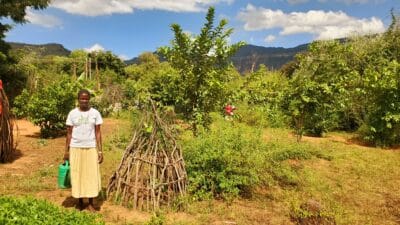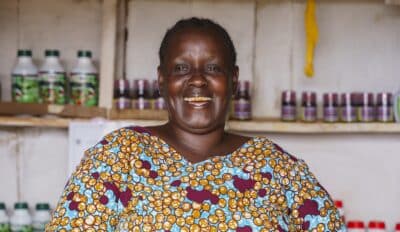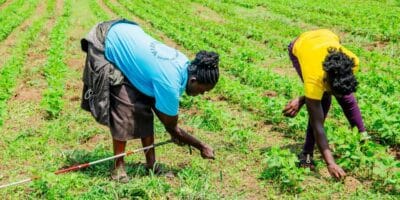Expert view
22 July 2014
Reflecting on my adventures at the Farm Africa London hub…

By Samrawit Sintayehu, Farm Africa’s Ethiopia-based Communications Officer
After an inspirational month’s secondment to the UK, I am back in my office in Addis Ababa and taking the opportunity to reflect on the rest of my trip, following my last postcard, My first fortnight in the Farm Africa London hub.
Farm Africa’s Annual General Meeting (AGM) sees board members, trustees, invited UK government officials and supporters of Farm Africa gather together to review and celebrate the organisation’s activities over the past year. The event always has a theme, and this year I felt privileged to give a presentation on Farm Africa’s 25 years of work in Ethiopia. I was able to talk about our early work with dairy goats, which improved the diets of thousands of Ethiopian people; the rural women’s empowerment programme, which effected economical and social change for participants; and our pioneering Participatory Forest Management work, which is helping Ethiopian forest-dwelling communities make a living from their environment in a sustainable way.
I was also able to talk about Ethiopia at a speaker training day in Cambridge. Farm Africa’s ‘speakers’ are volunteers across the UK who generously give their time to visit schools, churches and community groups in their local areas and talk to people about our work.
One fascinating component of my secondment was visiting UK smallholders, including Matthew Naylor, a farmer from Lincolnshire whose crops include potatoes and flowers. I really enjoyed meeting Matthew and seeing how he works – it gave me the opportunity to experience first-hand the differences (and similarities!) between UK and Ethiopian farming practices. In Ethiopia, 80% of the total population engages in agriculture, and most of this is smallholder farming. As a result, Ethiopian farmers have very little land each, so I was struck by the large plots of land used by UK farmers to plough their crops. I also noticed how advanced UK farming technologies are in comparison to the tools used by Ethiopian farmers. However, what struck me most was the fundamental difference in the purpose of the farming – at home, farmers use their land primarily to grow food to feed their families. The main objective is food security for the household. In the UK, this is very different – most of the farms are commercial enterprises.
All in all, my one month secondment was very exciting, and very valuable to the work that I do in Ethiopia. I particularly enjoyed seeing how the London hub operates, learning new skills from my UK colleagues, conducting site visits across the country and of course, meeting incredible Farm Africa supporters.




